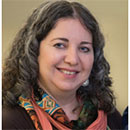Depending on your educational background and experience, finding a job in the educational sector in Canada may prove to be very easy…or very challenging. In most cases, you may need to upgrade your skills. The first step is to determine to what level your background matches best:
Education in Canada consists of five main categories:
- Early Childhood Education (working with children from 0-6 years old). Infant-toddler specialist, and special needs educators require a license. If you have formal studies and experience in this field and love small children, you may be able to have at least a portion of your experience and studies recognized by ECE Registry. In addition, you may be required to gain supervised Canadian experience, Emergency Childcare First Aid and some courses to understand the Canadian system. Most ECE courses are run by colleges and you can get an ECE assistant license after attending only one of three courses: health, safety and nutrition, child guidance, or child development. Job prospects are fair but the salary is not too high ($12-$18 depending on experience). You may find work in licensed childcare centres, neighbourhood houses, and some private schools. If you have entrepreneurial background, a good location and some funds, you may also be able to open your own family daycare or kindergarten centre.
- K-12 teacher. To work in either the elementary or secondary (high school) environment, you will also need a local license. The Licensing Branch in B.C. is managed by the Ministry of Education and the evaluation process varies depending on where your documents are coming from. You may be eligible for Professional, Basic, Trades or Conditional Certificate of Qualification. You may also find out that you are not qualified for a certificate. This does not mean you cannot ever teach, but you may be asked to take some specialized courses, improve your English or gain practical local experience. Getting a license may take up to two years and with the exception of private schools, jobs in this sector open slowly: you may start on call and stay on call for many years until a permanent position comes up.
- College instructor/university professor. These are non-regulated areas. However, they are difficult to get if you don’t have local studies and/or experience. For college instructors, employers are looking for professionals with real world experience in a trade, profession or sector, a master’s degree in a related subject and may also ask you to complete the PIDP (Provincial Instructor Diploma Program) that is offered through the Vancouver Community College. To teach at the university level you may be required to have a PhD, experience as a university professor and published journals. Jobs in this sector are usually very specialized and seasonal. They may also be part of a short contract to teach one course, so you may have to find other ways to supplement your income.
- Teacher assistant/classroom support. There are many types of assistants: some specialize in children with special needs (check ECE above), behavioral intervention, autism, etc. With few exceptions, you may need to complete a local certificate or diploma in the area of your interest. Jobs may be found in both private and public institutions and even private homes as a caregiver/teacher assistant.
- ESL instructor. If you have experience teaching English as a second language, you may opt to do the same in Canada. The career is challenging for immigrants because most institutions may prefer native speakers, but finding a job is not impossible if you are good. The regulatory body (not mandatory but preferable by most institutions) is TESL Canada. You may need to take a short TESL course and have a practicum. These jobs may also be seasonal and on call or contract for a few hours.
Some immigrants with backgrounds in education find it easier to switch careers and become settlement workers, community counselors or even career counselors due to the similarity of the roles and requirements for the jobs.
In Part 2, more details on how to access the above careers.



